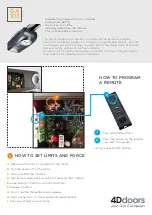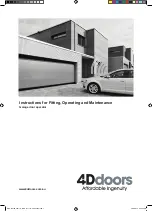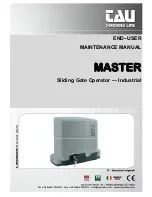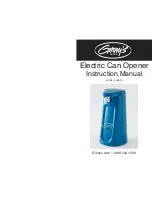
21
TEST
1. With the door fully open, place a 1-1/2" (3.8 cm) board (or a 2x4 laid flat) on the
floor, centered under the door.
2. Operate the door in the down direction. The door MUST reverse when it makes
contact with the board.
ADJUST
If the door stops but does not reverse:
1. Review the installation instructions provided to insure all steps were followed;
2. Repeat Program the Travel (see Adjustment Step 1);
3. Repeat the Safety Reversal test. If the test continues to fail, call a trained door
systems technician.
IMPORTANT SAFETY CHECK:
Test the Safety Reverse System after:
•
Each adjustment of limits.
•
Any repair to or adjustment of the door (including springs and hardware).
•
Any repair to or buckling of the floor.
•
Any repair to or adjustment of the operator.
Test the Safety Reversal System
Test the Protector System
1. Press the control station button to open the door.
2. Place the operator carton in the path of the door.
3. Press the control station button to close the door. The door will not move more than
an inch (2.5 cm).
The door operator will not close from a control station if the indicator light in either sensor
is off (alerting you to the fact that the sensor is misaligned or obstructed).
If the door operator closes the door when the safety reversing sensor is obstructed,
do not operate the door. Call for a trained door systems technician.
Without a properly installed safety
reversal system, persons (particularly
small children) could be SERIOUSLY
INJURED or KILLED by a closing door.
• Safety reversal system MUST be
tested every month.
• After ANY adjustments are made,
the safety reversal system MUST
be tested. Door MUST reverse on
contact with 1-1/2" (3.8 cm) high
object (or 2x4 laid flat) on the floor.
Without a properly installed safety
reversing sensor, persons (particularly
small children) could be SERIOUSLY
INJURED or KILLED by a closing door.
3
4
Safety Reversing Sensor
Safety Reversing Sensor
1-1/2" (3.8 cm) board
(or a 2x4 laid flat)
Adjustments
















































